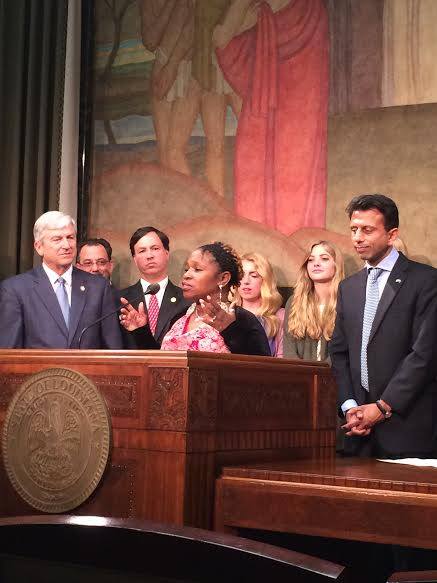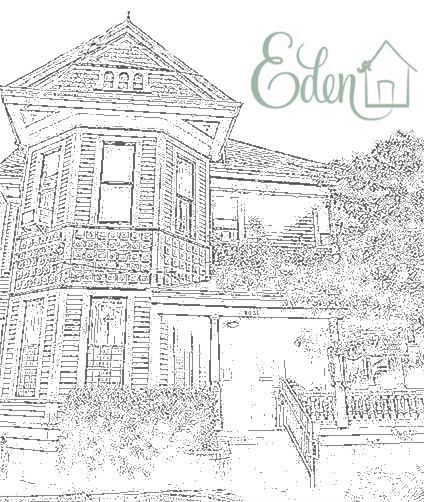I first encountered Eden House’s “choose love” tagline after liking them on Facebook; after each inspiring quote or update on the organization’s activities there would be the ubiquitous hashtag. Once I became an intern, I heard Kara, our executive director, tell tour groups how Eden House was built on the principle that love is the strongest force of change in the universe. I will admit that at the time I thought this was self-evident. Of course you should “choose love”, it seemed like saying “choose happiness”, why wouldn’t you? In my life love was never something I really had to consciously decide on. I grew up surrounded by a family who loved me and cared about me. Like everyone else I sometimes got angry at my parents or my sister but there was always that underlying foundation of love, something so solid that I never actively recognized it.
I started to really become aware of the impact of not growing up with such a support system through our Professional Development series. Each week Eden House brought in a speaker to touch on the different facets of human trafficking; the first few focused on the psychological impact of trauma. I knew that many people experienced trauma in their childhoods, whether it be parent negligence, sexual assault, or exposure to addiction, but I never really faced it as a reality. I viewed it as one of those Bad Things that happened to others far away from myself. The PD speakers brought it down to the ground level.
We heard from Dr. Stacy Drury, a professor of psychiatry at Tulane, about how childhood trauma rewired the brain so that survivors were neurologically conditioned to respond in a different way to upsetting situations. We also met with Dr. Hayne, the psychiatrist for Eden House. She posed the question of how would we behave if we were rejected by our primary caregiver from a young age? What would we act like if we hadn’t had our mothers to teach and model appropriate behavior? I began to look back on all the times my parents had taught me to take care of myself- from forcing me to take baths during my terrible twos to patiently white-knuckling through driving lessons. Where would I be developmentally if I had to try and figure it all out on my own, in an environment that I already didn’t feel safe in?
The most revealing conversation I had was with Eden House’s former Resident Director, Clemmie Greenlee. Clemmie had been forced into prostitution at age 12 and finally got out at 40 years old through the program at Magdalene House, which Eden House is based off of. She had gotten to a point in her recovery where she was comfortable speaking about her experiences and often gave talks to local groups with Kara. I asked her what was the most important quality to have going through the program? Determination. She said you can offer survivors the “furs and the Lexus” but if they’re addicted to drugs and not intent on getting clean, their primary focus is their next score. When Clemmie was abducted, she was shot up with heroin and addiction quickly took root. Many survivors have chemical dependency issues- whether they were forced into it by their pimp or chose it as a coping mechanism. The psychological issues from a life on the streets become that much harder to overcome when someone is also trying to kick a drug habit.
Clemmie put survivors’ struggle best when she said, “we live in this world of darkness and being controlled, and when we finally are able to step out into the light it can overwhelm us”. Fictional accounts of slavery and human trafficking usually end with the “victim” being rescued, presumably to live out there life in peace and happiness now that they’re free. Before I came to Eden House I thought the hardest part was getting women in the door. I’ve now come to realize it’s equally difficult for them to find the fortitude to stay. The average entry age of prostitution in the U.S. is 12-14 years old. To be controlled and abused from such a young age can cause development to stop, so a woman who comes to us at 30 may have the life skills of a 13 year old. The road to gaining those skills, like how to manage a bank account or cook, is hard enough but survivors are also often saddled with feelings of worthlessness. Negligence by their primary caregivers and abuse by pimps can cause very low-self worth.

Faced with those problems, choosing love is the most courageous thing our residents do, and they do it every day. They choose to trust that our organization truly loves them and wants to help them succeed, even though their past experiences tell them this is never the case. They choose to love themselves, even though the people surrounding them have made them feel like they don’t deserve it. From my time at Eden House I have seen that for some residents it is almost a daily struggle to choose the love and support of EH over their old lives. I am inspired by their courage in making that decision to choose love.

